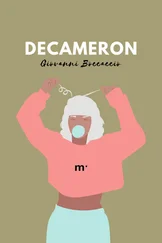For Joanna was very pretty indeed. She had beautiful long, tawny hair that she allowed to cascade luxuriously down her back. But where was the defiance, the filial insurgence?
In those moments in which mother and daughter found temporary tranquility in the company of one another, putting up vegetables in the cellar, for example, or making a pie, or together gathering the eggs in the henhouse, all was well and good, and Joanna felt only love for her second mother. Likewise, there were times that left Joanna alone with her father and there was commensurate tenderness and quiet bliss between these two as well. The morning in late April on which the sheep-shearer was to come for his annual visit was not, however, to be counted among those times. In fact, the morning brought one of the worst rows between her parents that Joanna had ever witnessed.
Mr. Hurd had risen earlier than usual to get the milking and other morning chores out of the way. He had looked in on his small flock of eighteen ewes, which he’d penned together at dusk the night before so that they would be ready for shearing when Mr. Talbot arrived. It had rained in the night and the upper doors of the shed had been left open and several of the sheep were now wet. Who had opened the doors?
Mrs. Hurd confessed. It was too stuffy in the cramped shed, she said, and she didn’t think that close confinement would be too healthful for the animals, whose fleeces had grown uncomfortably thick over the previous hard winter.
“It’s quite apparent to me that it’s only the wool you care about — having enough to sell to the Cooperative,” Florence railed from her new electric range, which she was still struggling to learn to use. “But if those sheep should all drop dead from heat exhaustion, where will you get your wool to sell then?”
“I’ll have to ask Talbot to return on some other day,” Dewey muttered in reply as he pushed his plate of ham and badly charred biscuits away. “Or else we’ll have to write off the fleeces of all those ewes who took an unexpected shower last night thanks to your thoughtlessness.”
“Why can’t you simply dry the drabbled fleeces on the floor of the corn crib after they’ve been sheared? Didn’t you have to do that a couple of years ago — the time that you left the upper doors open?”
“I’ll do what I have to do. And I’ll do it without breakfast. You burned the biscuits again. When are you going to learn how to use that new stove you forced me to buy? The stove we could hardly afford?”
Florence swung around to face the stove so that her husband couldn’t see her cry. Her hand fell on the handle of the frying pan. She wheeled back around, her reddened eyes burning with fury. “I should be like one of those hardened women who live in the shacks in the hills. I should take this iron skillet to your head and be done with your constant carping and cruelty.”
“Just try it,” dared Dewey, frostily. He buttoned his threat with a quick gulp of coffee. “It’s cold,” he pronounced.
Through all this, Joanna had been sitting at the kitchen table, staring down at her own blackened biscuits. She’d been sitting as she always did, silently, painfully, wishing that the hard words would stop. But this morning Joanna would not remain silent. This morning Dewey and Florence Hurd’s adopted daughter did something she had never done before: she made a threat of her own. “If you don’t stop this, I’m going upstairs and cut off all my hair.”
Joanna’s parents stared at her for a moment in awe. Then her mother said, “You will do no such thing.”
“I will,” said Joanna. “Stop it, or I intend to cut off every strand.”
Now it was her father’s turn to speak. “If you cut off even one filament of that beautiful hair of yours, Joanna, you will be swiftly and roundly punished. Do you hear me?”
“She has ears,” said Florence. “She heard you.”
“You can put down the goddamned frying pan now, Florence, unless you intend to use it, and then I’ll return in kind with enormous pleasure.”
The husband and wife glared daggers at one another, while their abashed daughter reverted to her former plate-staring posture. Like a whale unexpectedly breaching the surface of the water and then submerging herself again, Joanna disappeared, dropping down, down, down into the depths of her customary depression.
Dewey Hurd rose from the table, his look now redirected to the window across the room. “Talbot’s pulling in. Come with me, Joanna. I’ll spare you having to sit here and listen to your mother disparage me for the rest of the morning.”
Talbot was a large man in his middle years. As was his sartorial wont, he wore a western hat and overalls over a flannel work shirt. He trimmed sheep the same way his father and grandfather had trimmed them: with hand shears. He was very good at his job — the best in the county. It was impossible not to nick the ewes now and then, but when the job was over, there were very few cuts upon the sheep he’d sheared that were not small and easily healed by the wool grease, which contained a natural antiseptic. Talbot explained this to Joanna as he trimmed. He was fond of the girl, who reminded him of his three daughters, each now grown and moved away.
There had been three wet sheep and Talbot saw no need to return on another day after the fleeces had dried out. Nor would his busy schedule have even allowed it. “The wool can dry just as easily off the sheep as on.”
“How much do you think we’ll get this year, Talbot?” asked Dewey as the professional shearer went about his business.
“I’m guessing these ladies are good for about seven, maybe seven-and-half pounds a coat. That’s around 130 pounds all told. Not bad for the Shropshire-Hampshire cross and not bad at all for one of the smallest herds in the county. When are you going to decide to go all in as a sheep man, Hurd?”
The question being largely rhetorical, Dewey shrugged. He liked keeping milch cows too.
The sheep presently being trimmed was the smallest of the flock. Talbot had set her easily upon her rump on the shearing platform, holding her in place with his left knee and upper arms. Joanna watched, fascinated, as he worked his way down and out from the animal’s right ear, taking the coat off one piece at a time. Talbot was fast, but he was also good at holding the ewe still while keeping large sections of the wool intact.
It took about three hours to get all the sheep sheared, and Talbot took a few extra minutes to help gather the wool pieces and tie them all up, inner side out, into tight balls with paper twine. Joanna assisted with this as well, though her interest lay, as it did each year, in making sure that the waiting lambs were properly reunited with their respective mothers. Stripped of their wool jackets, the ewes all looked alike to the worried, bleating young ones, each of whom had to wait until her mother, through diligent rump-sniffing, claimed her. This day’s reconciliation went smoother than in previous years and made Joanna think of her own birth mother and the fact that she would never have the chance to reunite with her . Instead, she was now fixed by law to a woman who, no doubt, loved her in her own way, and a father who showed affection often enough to keep her from hopping on the next freight train to try her luck elsewhere.
Still, Joanna was far from happy and quite serious about her threat. Had her mother and father not already defied her request by keeping up their hostility toward one another in spite of her warning? Did they not believe her when she said that she would cut off all of her beautiful hair? And yet she didn’t want to be punished. The punishment would come out of anger, she had no doubt, and would be severe.
Joanna watched from the window of the shed as Talbot trudged back to his truck. Her father had gone to take the bundles of dry wool to his own truck behind the barn. It was at this moment that an idea came to her. She tore away from the sheep shed, running as fast as she could to catch up with Talbot before he drove away. She succeeded in reaching him just as he was climbing into the cab.
Читать дальше












